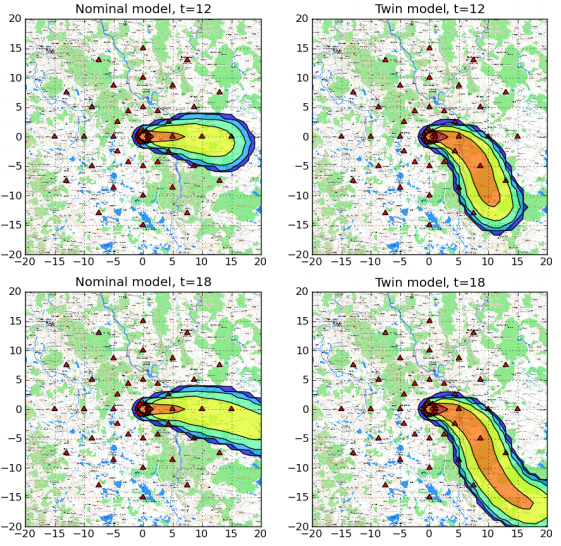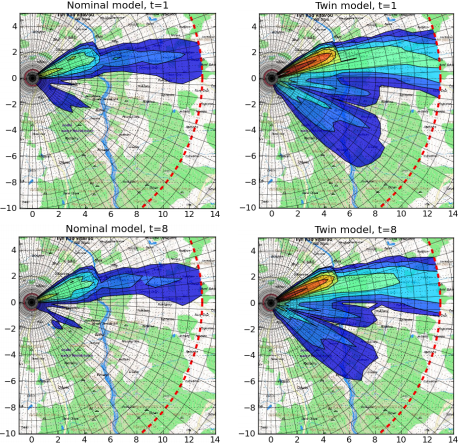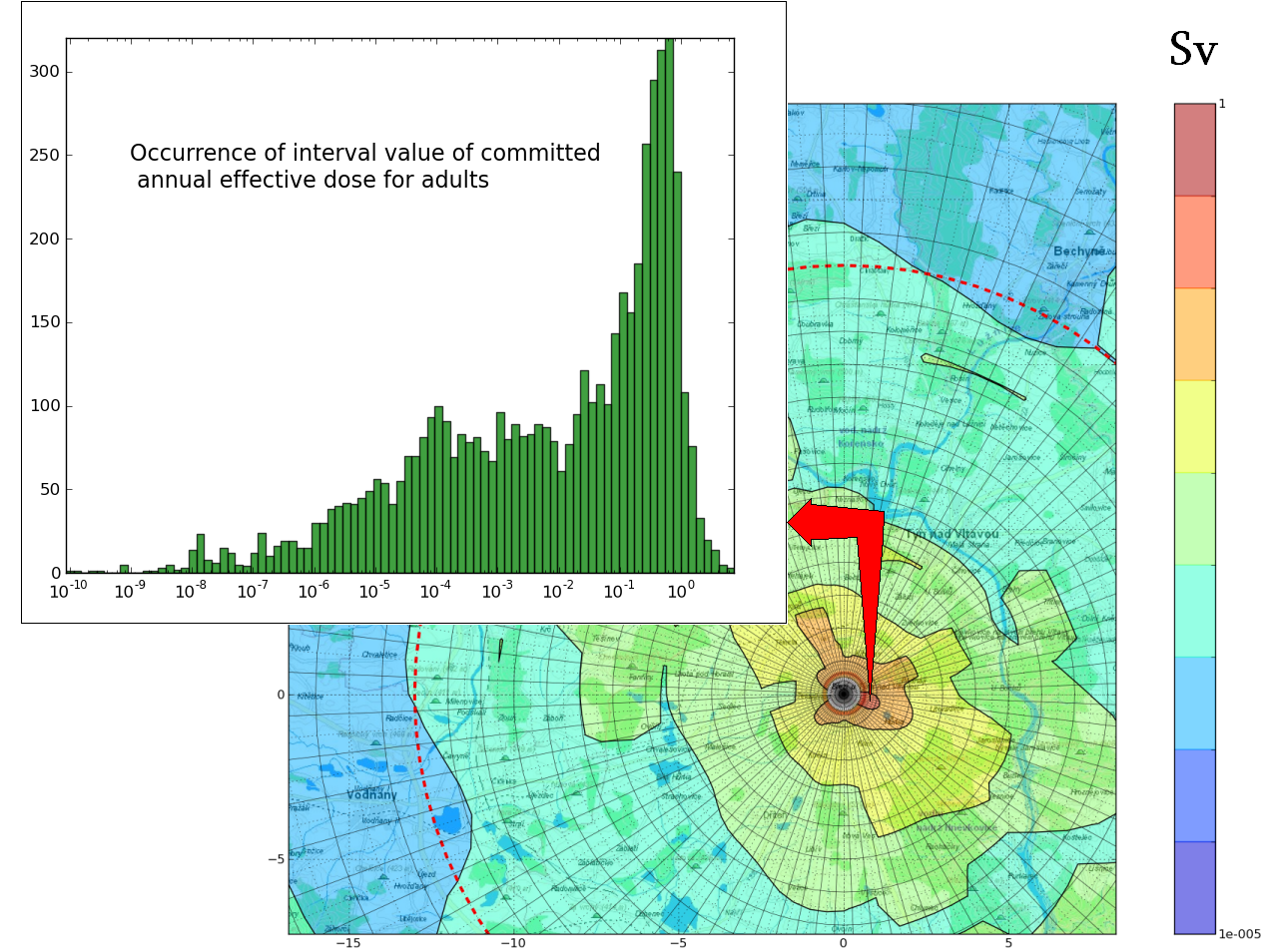
OFF-SITE CONSEQUENCE ASSESSMENT

 |
OFF-SITE CONSEQUENCE ASSESSMENT |
 čeština
čeština 
|
In the case of a radiation accident, the task of the decision support is to provide up-to-date information on the radiation situation, prognosis of its future evolution and possible consequences. The reliability of predictions can be significantly improved using data assimilation, which refers to a group of mathematical methods enabling an efficient combination of observed data with a numerical model. The dissertation concerns application of advanced data assimilation methods in the field of radiation protection. We focus on assessment of off-site consequences in the case of a severe radiation accident. The main contribution of the dissertation is development of sequential data assimilation methods for the early and the late phase of a radiation accident. Data assimilation is understood here as a particular case of recursive Bayesian estimation. Instead of using traditional estimation methods for state-space models based on Kalman filtering, we focus on sequential Monte Carlo methods, specifically particle filtering and marginalized particle filtering. The research has demonstrated that the particle filtering approach, when applied in these areas, provides useful insights into the problems of interest and results in improved versatility over more traditional approaches. Data assimilation systems based on particle filtering have a potential to be used for realworld emergency response in the near future and their development pushes on-line data assimilation towards operational application. Firstly, data assimilation methodology for the early phase of an accident was developed. It employs particle filtering with adaptive selection of proposal density for estimation of the most important variables describing the aerial propagation of radionuclides. The general methodology is applicable to all parametrized atmospheric dispersion models. Experiments with a simulated release demonstrated that the source term and bias of the basic meteorological inputs were successfully corrected using available gamma dose measurements. Secondly, we extended the idea of marginalized particle filtering to analytically intractable approximate filters for the purpose of data assimilation in the late phase. The result is a hybrid data assimilation methodology where multiple ensemble filters are run in parallel. The methodology was applied to joint estimation of the spatial distribution of deposition on terrain and estimation of the speed of radionuclides removal due to environmental processes in a simulated release scenario. Since no data from real reactor accident were available (until Fukushima-Daiichi disaster) all experiments were performed as twin experiments. In a twin experiment, measurements are simulated using a model of the system under investigation and perturbed with a random noise. The convergence of the estimated values to the known “background truth” can be then easily assessed. Our plans for the future research involve application of the developed methods on data available from the Fukushima-Daiichi and attempt to estimate the overall magnitude of relased radioactivity. Developed algorithms and the decision support software are currently being evaluated by experts from National Radiation Protection Institute where on-line data from the radiation monitoring network of the Czech Republic are gathered. Data assimilation methodologies are further developed within the grant project VG20102013018 solved in UTIA AV ČR 2010-2013 (the grant is provided by The Ministry of the Interior of the Czech Republic). The author of the disseration is a member of the research team. The data assimilation algorithms are implemented in the decision support system HARP (HAzardous Radioactivity Propagation) - the best application of UTIA 2010. The disseration was awarded by the Czech Nuclear Society. |
   
|
 čeština
čeština 